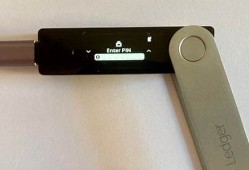
Ethereum (ETH) is a decentralized digital currency that has gained widespread adoption in recent years. One of the key features of Ethereum is its smart contract capabilities, which allow developers to create decentralized applications (dApps) and other blockchain-based projects.
To use Ethereum and interact with its ecosystem, you will need a wallet to store your ETH. There are two popular types of wallets for Ethereum: an eth wallet and a tp wallet. In this article, we will take a closer look at how to use an eth wallet and a tp wallet to receive and send ETH.
Using an Eth Wallet
An eth wallet is a software or hardware wallet that allows you to store your ETH on the Ethereum blockchain. There are several different types of eth wallets available, including desktop wallets, mobile wallets, and hardware wallets. Some popular options include MetaMask, MyEtherWallet, and Ledger Nano S.
When selecting an eth wallet, it's important to consider factors such as security, user interface, and compatibility with other platforms.
Step 1: Choose an Eth Wallet
The first step in using an eth wallet is to choose a wallet provider that supports eth functionality. Some popular options include MetaMask, MyEtherWallet, and Coinbase Wallet.
When selecting an eth wallet provider, it's important to consider factors such as security, user interface, and compatibility with other platforms.
Step 2: Connect Your Wallet to Your Device
Once you have selected an eth wallet provider, you will need to connect your wallet to your device. This may involve downloading the appropriate app for your device and following the instructions provided by your wallet provider.
Step 3: Store Your ETH
After your wallet has been connected to your device, you can begin storing your ETH in the wallet. To do this, simply follow the instructions provided by your wallet provider and enter the amount of ETH you want to store.
Using a Tp Wallet
A tp wallet is a type of cryptocurrency wallet that supports multiple cryptocurrencies, including Ethereum (ETH). Some popular options for tp wallets include Trust Wallet and Trezor Model T.
When selecting a tp wallet, it's important to consider factors such as security, user interface, and compatibility with other platforms.
Step 1: Choose a Tp Wallet
The first step in using a tp wallet is to choose a wallet provider that supports tp functionality. Some popular options for tp wallets include Trust Wallet and Trezor Model T.
When selecting a tp wallet provider, it's important to consider factors such as security, user interface, and compatibility with other platforms.
Step 2: Connect Your Wallet to Your Device
Once you have selected a tp wallet provider, you will need to connect your wallet to your device. This may involve downloading the appropriate app for your device and following the instructions provided by your wallet provider.
Step 3: Store Your Cryptocurrencies
After your wallet has been connected to your device, you can begin storing your cryptocurrencies in the wallet. To do this, simply follow the instructions provided by your wallet provider and enter the amount of cryptocurrency you want to store.
In conclusion, both an eth wallet and a tp wallet are useful tools for interacting with the Ethereum ecosystem and storing your cryptocurrencies. By choosing a reputable provider and following the steps outlined above, you can ensure that your transaction is secure and successful.









